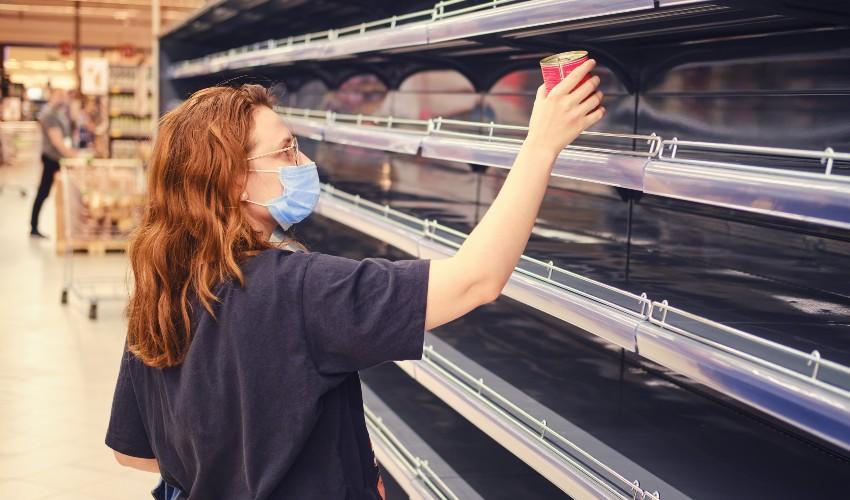
When the Pandemic Leads to Food Insecurity
TWO RECENT STUDIES ON FOOD SYSTEMS IN EUROPE AND THE PANDEMIC HIGHLIGHT JUST HOW VULNERABLE TO DISRUPTION THESE SYSTEMS ARELong supermarket lines and empty shelves were common sights during the first wave of the pandemic. But the health emergency’s impact on the food system has largely been overlooked by governments in the scramble to provide health care and cope with the social fallout. Two recent studies on food systems in Europe and the pandemic highlight just how vulnerable to disruption these systems are.
The article “Is the COVID-19 Pandemic Turning into a European Food Crisis?” published in European Journal of Public Health by Bocconi University’s Veronica Toffolutti and David Stucker, and Martin McKee at the London School of Hygiene and Tropical Medicine shows that lockdowns create two interlinked threats to food security.
The first is the shortage of food triggering price rises when production of food is slowed or halted. In Italy, for example, around 25% of food production relies on about 375,000 seasonal agricultural workers from Eastern Europe. France, Germany and the Netherlands face the same problems. The borders closure and the consequent halt in the movement of people pose the real threat that crops may be left to rot in the fields. Price changes also reflect a shift in demand away from fresh food towards long-life food when consumption shifts from restaurants to the home, leading to an increase in prices of staples used for the production of long-life products such as pasta and rice and to a collapse for those with a limited shelf life. In parallel, some countries producing wheat and rice limited their export to safeguard domestic food production. “We need to rethink Europe’s agricultural policy, because it at the moment it is too vulnerable to shocks to the system,” said Veronica Toffolutti.
The second threat is the unequitable distribution of food. During the Great Recession, both the USA and Europe saw rising food prices and stagnating wages, leading to a significant increase in food deprivation, with people with low socioeconomic status groups, e.g., un/underemployed and disabled people, being hit the hardest. “In late March, the European Food Banks Federation asked its 29 country-members how they were coping. Over 80% reported an increase in numbers seeking emergency food assistance alongside diminishing supplies of long shelf-life food being donated,” the authors said.
Food insecurity increased substantially in the UK during the pandemic from April to July 2020, according to “Changing Probability of Experiencing Food Insecurity by Socioeconomic and Demographic Groups during the COVID-19 pandemic in the UK,” by Jonathan Koltai at Bocconi’s Dondena Centre for Research on Social Dynamics and Public Policy, Toffolutti, McKee, and Stuckler.
The prevalence of reporting at least one form of food insecurity rose from 7% in April to 20% by July 2020, according to data from 11,095 respondents in the Understanding Society COVID-19 longitudinal study survey. “Food insecurity” was defined as having used a food bank in the last 4 weeks; being hungry but not eating in the last week; or not able to eat healthy and nutritious food in the last week.
Even though, the United Nations Economic and Social Council’s Committee on Economic, Social, and Cultural Rights require States to actively monitor food insecurity under the ‘right to food’ provision of the UN Declaration of Human Rights, none of the European countries has a food insecurity monitoring system. “The COVID-19 pandemic is the opportunity to change this. An opportunity that must not be missed,” the authors said.
VISIT the Bocconi COVID Crisis Lab website
by Jennifer Clark
